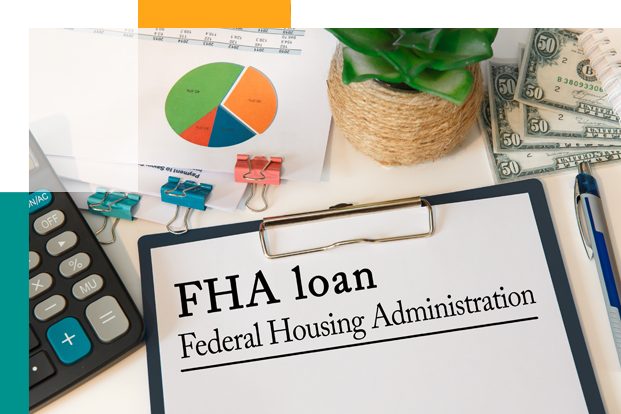FHA Commercial Loan Guide

An FHA commercial loan is a government-insured home loan granted by a bank or other lender approved by the agency. They are particularly well-loved by first-time homebuyers. Savings, a monetary gift from a relative, or a grant for down payment help are all acceptable sources of a down payment for FHA loans.
No one receives a mortgage loan directly from the FHA. A bank or other financial institution that the FHA has approved issues the loan. The FHA insures the loan. The bank isn’t taking on the default risk, so getting approval is more accessible. In this article, you’ll learn all you need to know about FHA commercial loans.
Residential Multifamily Loans
Residential multifamily loans fund the acquisition or refinance of two or more-unit residential properties, such as apartment complexes, townhouses, or duplexes. Both private investors and commercial real estate businesses may use these loans, often provided by banks, credit unions, and other financial organizations.
Although they have different underwriting processes and terms, residential multifamily loans are structured similarly to conventional residential mortgages. Residential multifamily loans have a range of repayment terms, usually from 15 to 30 years.
Commercial Multifamily Loans
Commercial multifamily loans fund the acquisition, building, or rehabilitation of multifamily properties with more than four residential units. These properties can include apartment complexes, townhouses, and other types of multifamily housing. Commercial multifamily financing options come in many different forms, including:
Lenders evaluate a commercial multifamily loan application based on several important characteristics, such as the borrower’s credit score, debt-to-income ratio, history of rental revenue, cash flow and occupancy rate, and more. The lender may also need a property inspection and an evaluation as part of the loan underwriting procedure.
When Does a Commercial Property Qualify for FHA Financing?
Almost always, FHA financing is not available for commercial properties. But, a certain kind of FHA loan program known as the Section 232 program offers funding for healthcare facilities like nursing homes, assisted living facilities, and hospitals. Eligible borrowers may use FHA-insured loans under this program to build, renovate, or refinance healthcare facilities.
Certain underwriting and loan origination standards must also be followed. These standards ensure that the medical facility is financially sound and can repay the loan. It’s essential to remember that the Section 232 program only applies to healthcare institutions and that FHA financing is often not available for commercial properties in other industries.
What Is the FHA Rental Property Loan Program for Multifamily Properties?
The FHA rental property loan program is a lending program that the Federal Housing Administration (FHA) offers for multifamily properties. This program aims to promote rental property investment and give low-and moderate-income families access to affordable housing options.
The FHA rental property loan program offers long-term, low-interest financing for acquiring or refinancing apartment complexes with five or more units. Both seasoned and rookie investors are welcome to participate in the program, which offers more flexible terms and smaller down payments than conventional commercial loans.
Can You Buy a Commercial Property with an FHA Loan?
No, an FHA loan cannot be used to purchase a commercial property. FHA loans offer regular Americans a clear opportunity; they give them a better shot at becoming homeowners. FHA loans are not the best financing for commercial real estate projects because they are intended to create fair opportunities for homeownership.
FHA commercial loans are usually always for single-family homes, multi-family homes, and condos. FHA loans are not available for most commercial real estate. When deciding whether a property is eligible for an FHA loan, its zoning is significant.
FHA loans cannot be utilized for commercial properties like shops, office buildings, or industrial structures because the FHA’s focus is on the housing market. The property the loan is used for must be owner-occupied, meaning the borrower must reside in the mortgaged property. This is one of the most important requirements for FHA loan approval.
The large bulk of the commercial real estate is ineligible due to this differential for FHA loan approval. Suppose you’re interested in buying a commercial property. In that case, you might want to look at alternative financing choices like a conventional commercial loan, an SBA loan, or a portfolio loan from a private lender.
What Are the Requirements for an FHA Loan?
FHA loans have somewhat lenient conditions for approval because they’re meant to make homeownership more accessible to many people. The exact requirements for conventional real estate loans do not apply to these loans.
Even though FHA loans have fewer conditions than conventional loans, they still need certain things to be approved, including evidence of income, a Social Security number, and residency in the state where the loan is being provided.
Down Payments
One of the early steps in obtaining a mortgage is making a down payment. FHA commercial loans have a relatively low down payment requirement; they can be as low as 3.5%. On the other hand, borrowers with credit scores below 580 will be required to put down at least 10%. Since FHA loans have modest down payments, aspiring homebuyers have a better chance of getting a mortgage with less money down.
Credit Score
Individuals with bad or no credit scores can be approved for FHA loans. FICO deems credit scores in the 500 level to be “extremely bad”-while private lenders may turn down applicants with credit scores in this range, these individuals can still qualify for an FHA loan. However, the general credit score required for an FHA loan is commonly 580.
This characteristic of FHA loans defines their availability. Getting loan approval can be very challenging when your credit score is low. FHA loans remove this obstacle by granting loans to those with bad credit and requiring registration in mortgage insurance schemes.
Employment
The FHA-approved lender will demand proof that the applicant can repay the mortgage because this is a requirement. Evidence of recent and consistent employment is crucial for figuring out whether the borrower can keep their end of the bargain. Tax returns, a year-to-date balance sheet, and a profit-and-loss statement can all prove this.
Suppose you have a strong work and income history in the same or a closely comparable occupation for two years before becoming self-employed. In that case, you may still qualify even if you have been self-employed for less than two years but longer than one year.
Adequate Earnings
The total of your mortgage payment, HOA fees, property taxes, mortgage insurance, and homeowners insurance should not exceed 31% of your gross income. This is referred to as the front-end ratio by banks. However, your back-end ratio, which includes your mortgage payment and any other monthly consumer bills, should be less than 43% of your gross income.
History of Paying Back Debts
Lenders will examine your two-year work and payment history for utility and rent expenses. Applicants who fall behind on federal student loans or income tax payments will be declined unless they accept a suitable repayment plan. A record of bankruptcy or foreclosure may also be an issue.
To be eligible for an FHA loan or any mortgage, the applicant must have been out of bankruptcy or foreclosure for at least two or three years. But, exceptions may be allowed if the borrower can show they have made an effort to rebuild their credit and organize their finances.
FHA Mortgage Insurance Premiums (MIPs)
You must pay two types of mortgage insurance premiums (MIPs) for an FHA loan: an upfront MIP and an annual MIP paid monthly. You have two options for paying the upfront MIP: at closing or by rolling it into the loan. The U.S. Treasury Department oversees the escrow account where these payments are deposited.
If you cannot repay your loan, the money will be used to pay off your mortgage. Contrary to its name, annual MIP payments are made by borrowers every month and range from 0.45% to 1.05% of the original loan amount. Different payment rates apply depending on the loan amount, loan term, and original loan-to-value (LTV) ratio.
Along with the upfront MIP payment, additional monthly premiums must be paid. Depending on the loan’s term and LTV, you must make annual MIP payments for either 11 years or the loan’s lifespan. The amount of premiums you pay may be deductible from your taxes.
Conclusion
The FHA loan allows those whom banks might otherwise turn down to become homeowners. They might need more money for a down payment or have poor credit scores. FHA loans weren’t designed to assist would-be homebuyers looking at more expensive homes. Instead, the FHA loan program supports low-and moderate-income homeowners, especially those with little money saved for a down payment.
Finance Lobby is a specialized platform that links lenders and borrowers with remarkable granularity based on each individual’s lending preferences and the broker’s particular deal requirements. We aim to provide easy access to commercial loans. Sign up now to get the best deals.


